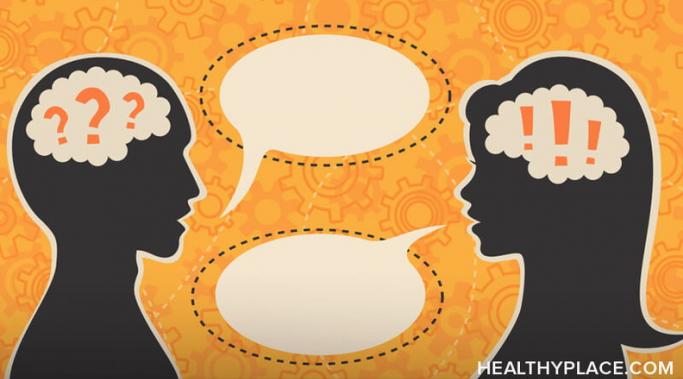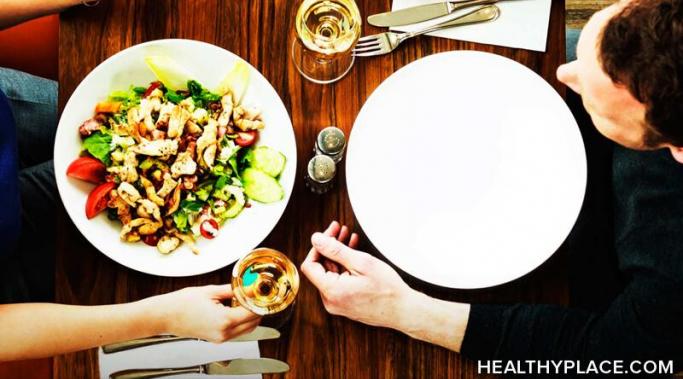It's official: The holiday season has arrived, and Thanksgiving is just around the corner which means that eating disorder (ED) survival tips are now more important than ever. This time of year is known for family traditions and cultural festivities, but it can also feel like a burden if you are in recovery from an eating disorder. Maybe there's a relative who points out the number of calories everyone is about to consume at the dinner table. Perhaps your well-intentioned grandmother hounds you to take seconds on dessert or the conversation detours to how "healthy" and "normal" your weight has started to look.
Coping Skills for Eating Disorder Recovery
Secrecy and bulimia (and all eating disorders) often go hand in hand. But this is especially true for bulimia, where people struggling with the illness may not appear to be unwell. There are so many unspoken layers of complexity to the disease that a person can suffer for years without getting the help that they need. But breaking the secrecy around bulimia is one of the best antidotes to isolation and stigma. By opening up and sharing their difficulties around food with others – even anonymously – people can stop the illness from worsening over time. Talking about it out loud is often the first step towards healing. So, how do people go from years of silence and secrecy about bulimia to admitting that they have a problem?
Eating disorders have been trivialized for decades. However, people struggling with these illnesses have an elevated risk of death by suicide compared to other psychiatric disorders, with bulimia having the highest attempted suicide rates. High comorbidity associated with bulimia – and the dearth of research – makes it difficult to tease apart what contributes to suicide risk. But it’s important for people to know that both bulimia, and the suicidality that accompanies it, can be treated and overcome. (Note: This post contains a trigger warning.)
Is it possible that an improved body image can prevent eating disorders? Research has been fairly consistent in identifying the link between body image issues and eating disorders. So, can school-based intervention programs help reduce the onset of eating disorders in young people by giving them the tools to develop high body esteem and satisfaction?
Eating disorders and vacation: Do you find it difficult—maybe even impossible—to enjoy a summer vacation without the influence of your eating disorder at the forefront of your mind? I can relate, and it's a continuous process for me to release those obsessions and insecurities around exercise or food anytime I travel outside my normal routine. Recovery from eating disorders and vacation plans can, however, come together.
New research suggests that poor “interoception” – the process by which we notice and understand internal sensations, like how hungry or thirsty we are –- may contribute to eating disorders. It turns out that when it comes to disordered eating, the common stereotypes that restricting stems from an unrelenting quest for thinness and bingeing is due to a lack of self-control are wrong.
There’s been significant research to validate the correlation between the personality trait of perfectionism and bulimia nervosa, although, the causality has been debated. A 2010 study in the "International Journal of Eating Disorders," researchers showed that perfectionism plays a role in the “etiology, maintenance, and treatment of eating disorders.”
If you are like me, then you might have asked yourself the question: "What are some eating disorder recovery podcasts worth tuning into?" I am a major advocate of professional counseling—in fact, I see my therapist once a week—but I also endorse other supportive resources outside a counselor's office too. The hour I spend in therapy each week is sacred and beneficial to me as a person in recovery for both anorexia and trauma-related issues, but when I'm not directly across from my therapist, the intervention I reach for most often is my arsenal of podcasts. So in this article, I want to break down the eating disorder recovery podcasts that I consider worth tuning into as therapeutic adjuncts—to reinforce not replace clinical treatment—and why I find them useful in my own healing process.
Loving yourself through an eating disorder relapse is important because, if you have experience with an eating disorder, then you know firsthand that the recovery process is not a linear route. Instead, it's full of detours and obstacles, forward motions and backward stumbles. Sometimes there are victories, but other times, a relapse can occur—and when it almost inevitably does, the question then becomes: How do you love yourself through that eating disorder relapse?
New Year's resolutions for eating disorder recovery can often feel like undue pressure to reach arbitrary benchmarks or perform to certain standards and expectations. But in some cases, New Year's resolutions can actually help with eating disorder recovery—if you are intentional and realistic about them.









